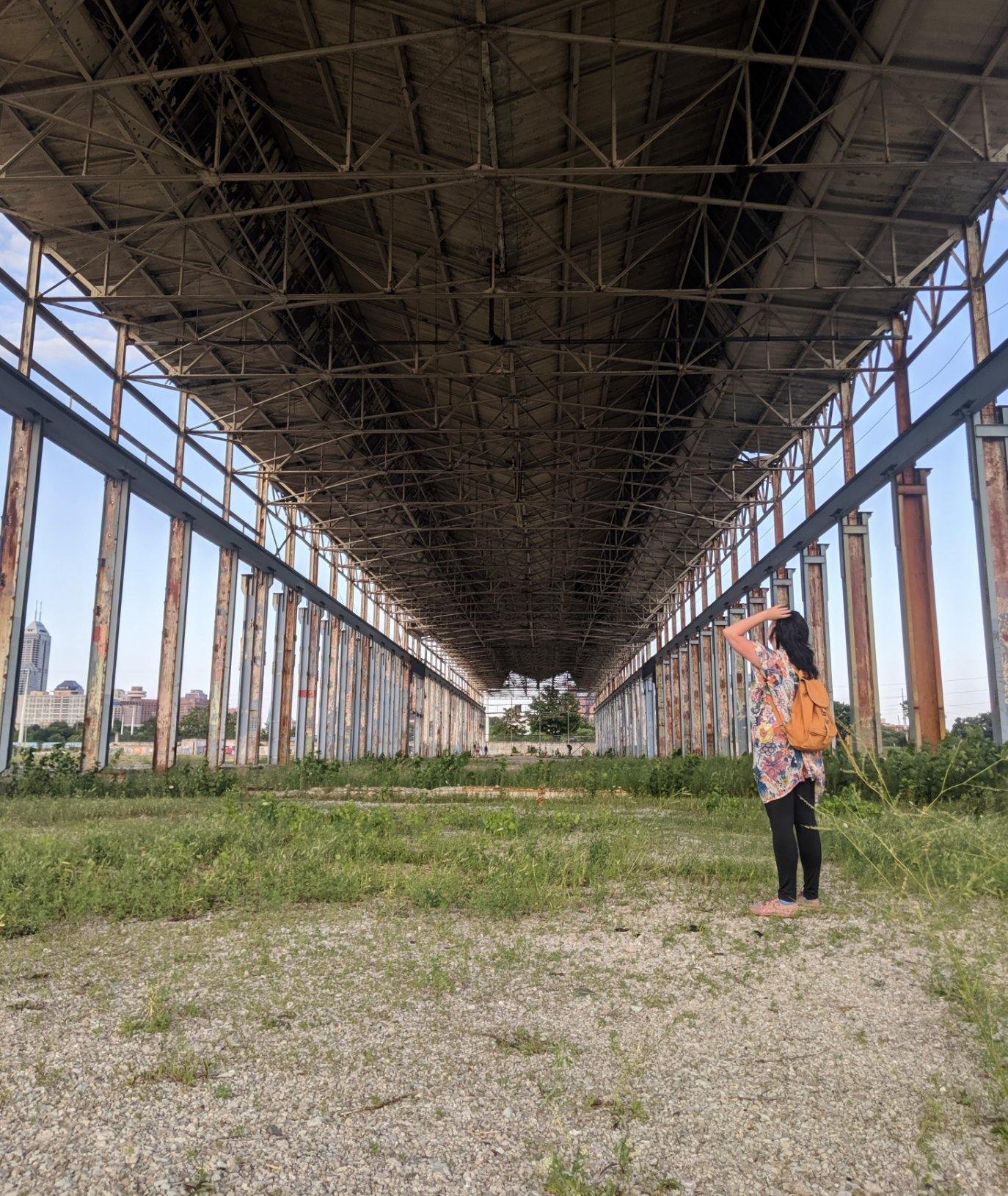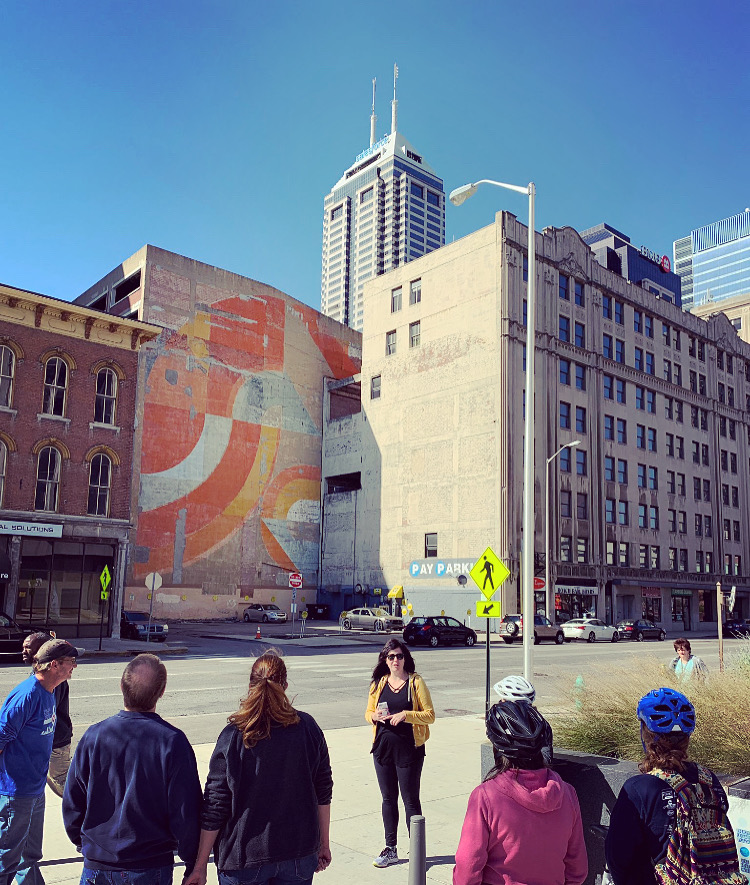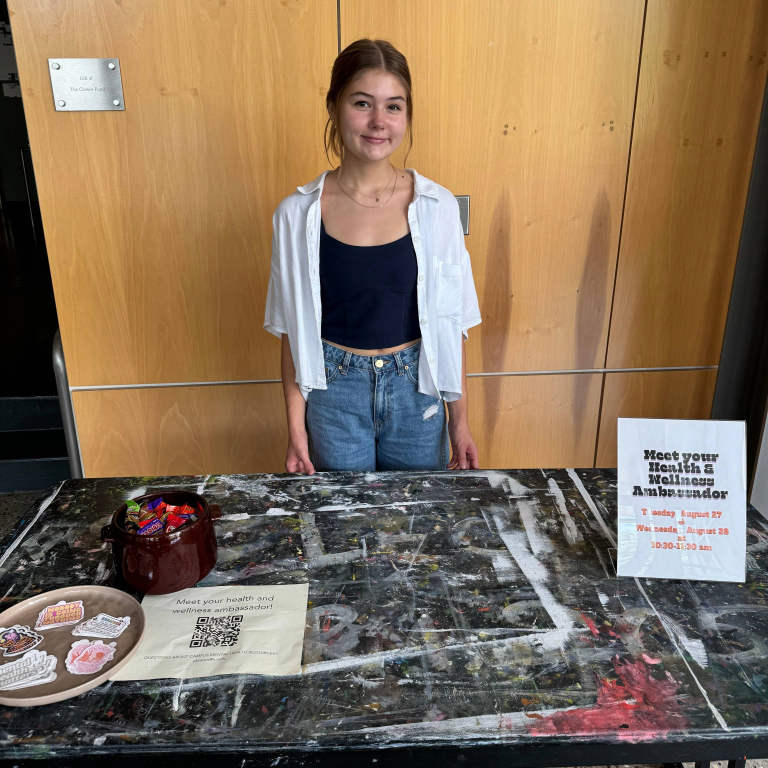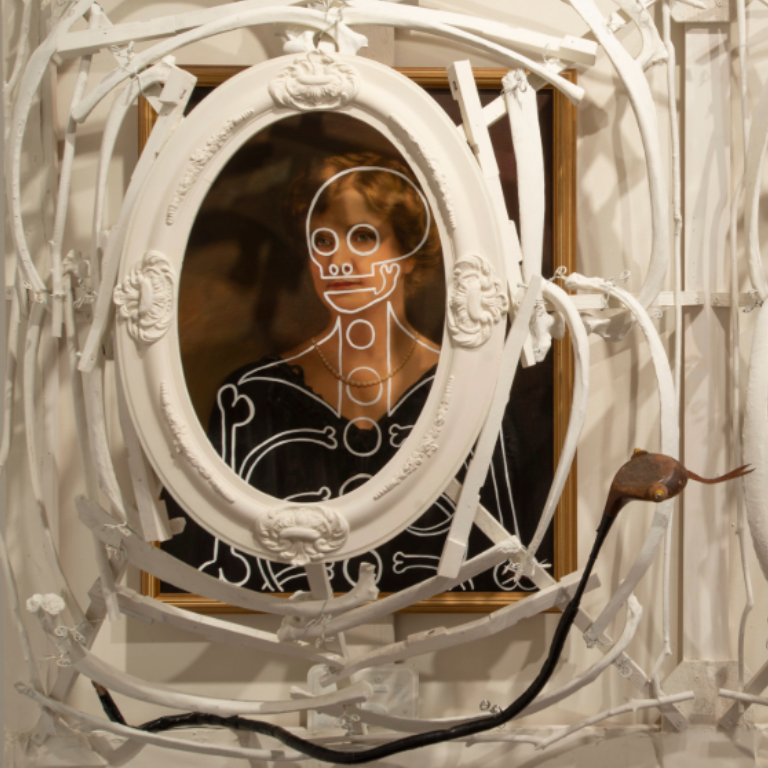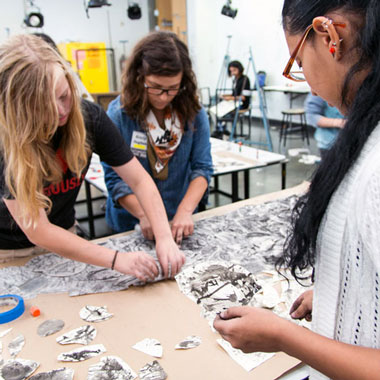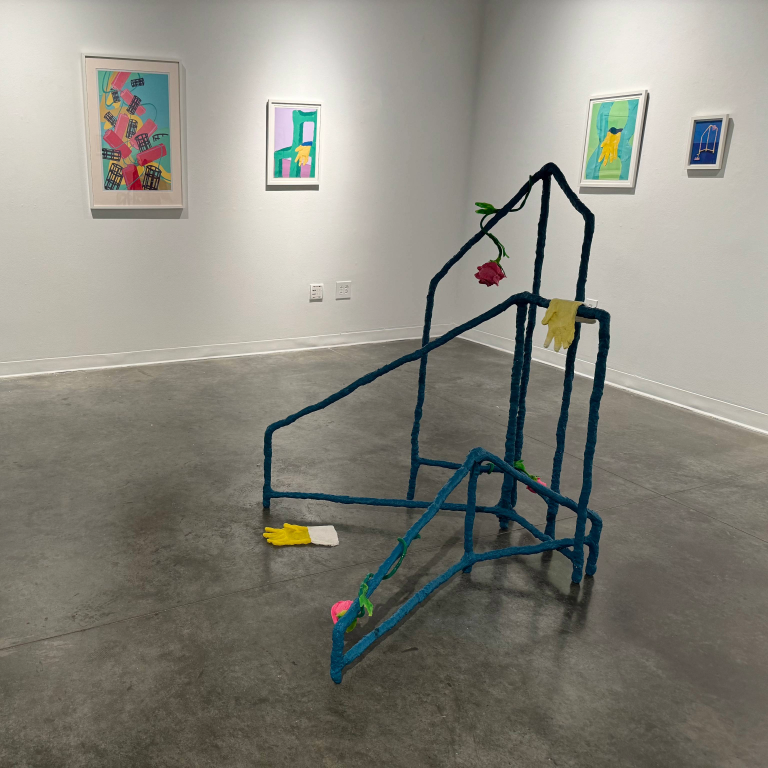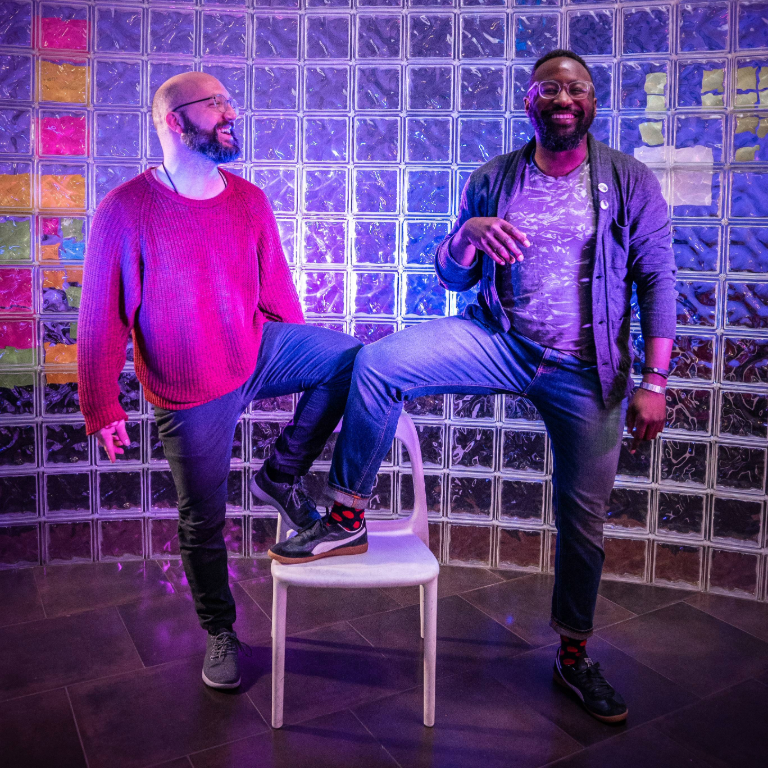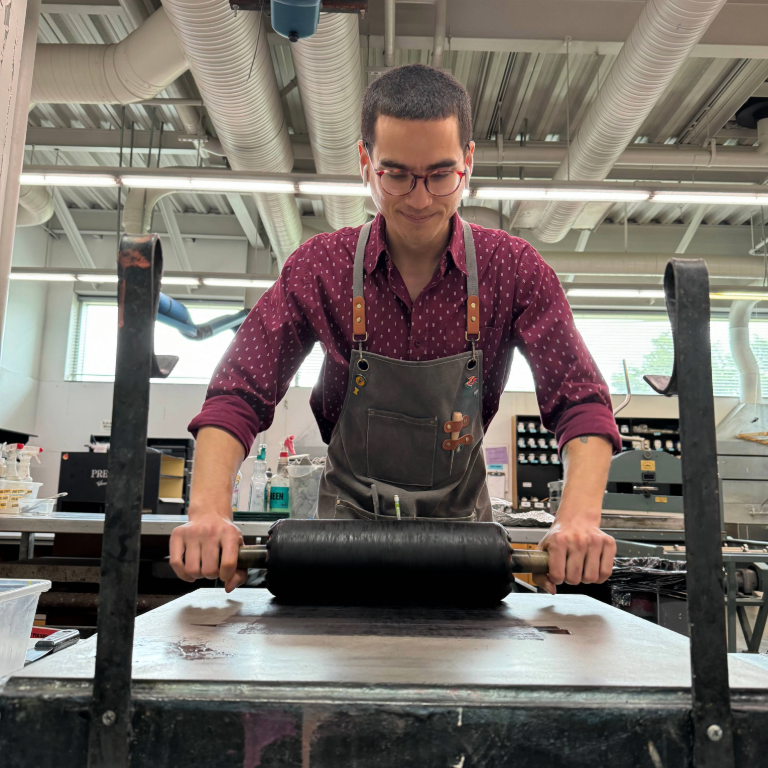Jordan Ryan (B.A. ’10), an administrator of public records for the city of Indianapolis, represents the future of historic preservation in Indianapolis. Ryan’s consistent focus on accessibility and civic engagement in their career has earned them Herron’s 2024 Distinguished Alumni Award.
A 2022 recipient of the Indianapolis Business Journal’s 40 Under 40 Award, as well as multiple honors from Indiana Humanities and the National Endowment for the Humanities, Ryan is committed to work that uncovers forgotten spaces in the city of Indianapolis and surrounding communities.
Ryan’s eclectic post-graduate career includes archival work, historic preservation, exhibit curation, and advocacy. They’ve worked on subjects ranging from the history of housing discrimination to curating physical and digital collections for the Indiana Historical Society. They recently took a break from setting up a new archives space in a vacated court room to discuss the career they pursued after getting a degree in art history at Herron.
HERRON: Congratulations on winning the 2024 Herron Distinguished Alumni Award! You’ve been quite busy since you graduated in 2010. What are you up these days?
JORDAN RYAN: My current title is administrator of public records for the office of finance and management at the city of Indianapolis. That’s a very jargony title, so what I tell people is I'm the city-county archivist. It's my job to collect, describe, manage, and make accessible city and county records.
HERRON: What did your path to this job look like?
JORDAN RYAN: I stumbled into archiving—my background is in art history. One of my first jobs at the university was in the Herron art library. I was really into reference work, especially if it had to do with the library’s unique book collection and the digital collections. After spending a couple of years in the workforce after graduation, I went back to school to get a master’s degree in public history. Then I had a couple of positions with different cultural institutions, but I really found myself thriving in the architectural archives at the Indiana Historical Society. Part of that job was curating the Indianapolis Bicentennial for 2020 and I think that really set me up to know the right people, know city history, know what records were accessible, what weren't, and what was in the backlog.
After I left the Historical Society, I started my business—The History Concierge—and one of my biggest clients was the Department of Metropolitan Development, which covers things like city planning and historic preservation. They had an incredible archive of historic maps, land use maps, neighborhood plans, and transportation plans. I worked as a contractor for them for about a year and a half. Other departments would hear about the work I was doing with the Department of Metropolitan Development and ask me to look at their archives. That just kept happening and it was very clear that there was this need to have a centralized archivist for the entire city-county enterprise, so I just sort of fell into it, and eventually I ended up in this newly created position at the city.



